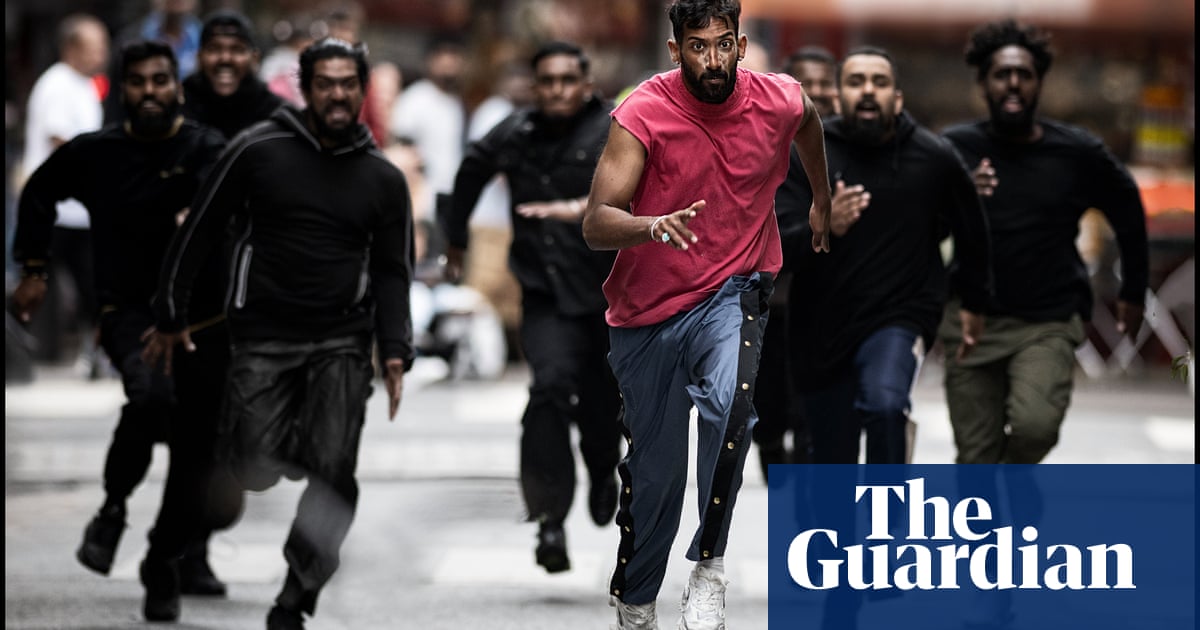It has been hailed as one of the most innovative and surprising French gangster films this year: a suspense movie that tears through Paris’s Tamil neighbourhood.
The police thrillerLittle Jaffna, which opened in France this week, is set in the French capital’s Tamil community, which has rarely been represented on screen – and never in an action film by a French actor, writer and director of Tamil heritage giving his inside take on the legacy ofSri Lanka’s bloody ethnic conflictfor younger generations living far away in Europe.
Lawrence Valin, 35, who was born in the Greater Paris area to Tamil parents, wrote, directed and starred in his own film after feeling exasperated at never being offered leading roles inFranceand instead being cast in bit parts as a mystic or rose-seller and asked to put on a fake Indian accent.
“In France, the image we have of a French-Tamil person is a migrant – I wanted to change that, have a new representation, to show new role models,” Valin toldArte TV.
Little Jaffna, which won this year’s top jury prize and the audience award at France’s major thriller festival,Reims Polar, is set among the many Tamil restaurants and boutiques in the area between Paris’s Gare du Nord station and La Chapelle, known as Little Jaffna after the capital of the Tamil-majority Northern Province in Sri Lanka.
Michael, a French police officer of Tamil heritage, played by Valin, is tasked with infiltrating a gang involved in people-smuggling and racketeering that channels funds to the separatist militant group known as the Tamil Tigers.
The film is shot in Tamil and French on the streets of Paris. TV screens in living rooms and cafes show a backdrop of Sri Lanka’s 26-year brutal and bloody ethnic conflict in which least 100,000 people were killed. The conflict officially ended in 2009, but its complex legacy remains.
The film, a colourful exploration of Paris’s Little Jaffna and a comment on civil war, is ultimately about the complexities of French identity and how younger generations deal with a conflict far away. The French culture magazineTeleramacalled it a mix of “highly stylised action and geopolitical immersion”.
The last major feature film centred on Tamils in France was a decade ago when the French directorJacques Audiard– who made the recent trans Mexican cartel musical,Emilia Pérez– won the Cannes film festival Palme d’Or forDheepan, about three Tamil refugees on a housing estate outside Paris. Audiard said at the time that he wanted to show characters radically different from his own experience.
This time, Valin wanted to show the Tamil community in Paris from the inside. He chose the thriller format because he wanted to find a gripping way to introduce French cinemagoers to the Sri Lankan conflict, he said. But he has acknowledged that a violent police drama was far from a portrayal of all Tamils in Paris.
“I thought that a thriller, an action film, suspense – all those universal codes of cinema we know – is what would bring people in to watch the film,” Valin said. “They’ll come to see it saying that above all it’s a good thriller. Then, as a kind of doggy bag, I send them home [with an insight into] the Sri Lankan conflict, and this community. For me it’s a way to open doors. I’ve made a first film, and that now allows a generation of younger film-makers to make their own films, saying: ‘If he did it, I can too.’”
